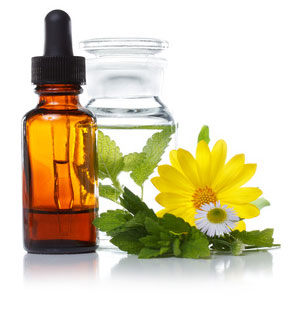
By far and away the very first thing consumers do when evaluating a new cosmetic product is smell the emulsion. Smell is a powerful sense, and fragrance elicits so many emotional responses. Cosmetics companies know that consumers respond to fragrances in a way that compels them to shop. One of the most researched (for marketing ability) ingredient categories is fragrance. Last year, I read a report on how Biotherm spent literally millions of dollars to develop the fragrance used in their Skin Vivo line. The fragrance was developed to make consumers think of youth when smelling it.
There's a real problem with fragrances in cosmetics, however—almost always, fragrances create reactions on the skin that lead to more cellular damage than the overall product is helping prevent.
The way fragrance is released in a cosmetic formula is always through a volatile reaction of evaporation. This will almost always cause serious inflammation on the skin—if not visible, then at the microscopic level. Any time the skin is inflamed it will go into vaso-constriction, thus preventing the active ingredients from penetrating the skin and, of course, doing the job for which they were designed.
This inflammation causes several physical changes in the skin:
1. Collagen breakdown
2. Free radical damage
3. Inhibits natural healing processes
4. Inhibits natural defenses against bacteria and microbes
5. For sensitive skins it will even increase visible redness
Fragrance is not always readily detected in cosmetics either—often masking agents are used to disguise the natural smell of the active ingredients (which often have really unpleasant smells). These masking agents are so "clean" smelling that often consumers think the product is fragrance-free.
Natural oils are no better—the vast majority of fragrant plant oils are incredibly volatile by nature. Some can be as damaging as synthetic compounds.

Does this mean every fragrance in every product is harmful to the skin?
No, of course not. Chances are, however, the compounds that are being used include many of the oils which are.
As a consumer, it becomes important to read the ingredient labels carefully to avoid harmful fragrance compounds. Fragrances are responsible for some 80% of all known allergic reactions to cosmetics. If you have had difficulty with cosmetics causing irritation, one of the best ways to solve this problem is to seek out fragrance-free cosmetics.
Remember not all fragrance compounds are harmful. For example, Rose Oil is one of the most healing and hydrating ingredients used in cosmetics.

Here is my list of the most commonly used fragrance compounds to avoid in cosmetics—look for these words on ingredient lists:
Being "Scentsitive" to fragrance is no joke. Many people can actually suffer an anaphylactic reaction as a result of exposure. So, how can you help?